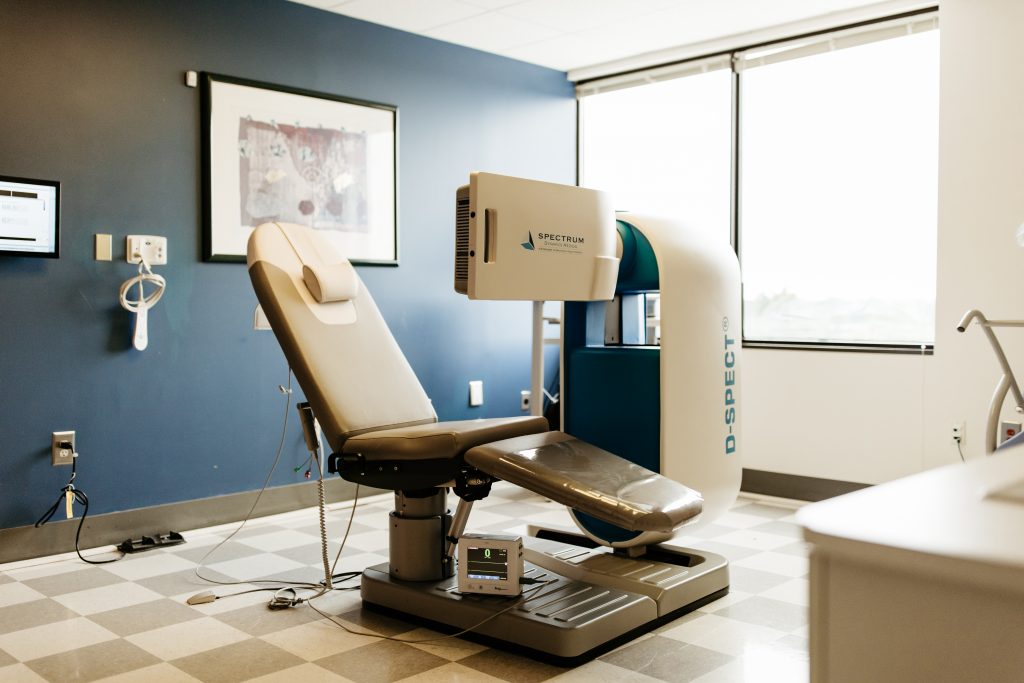Single-photon emission computerized tomography (SPECT) scans use a radioactive substance and a specialized camera to create 3-D images of your heart. This type of non-invasive imaging provides your cardiologist with highly-detailed information about how each part of your heart looks, but more importantly how it’s functioning.
At Georgia Heart Institute, our cardiologists will use a SPECT scan to help detect some of the most common cardiovascular conditions, such as narrowing of the arteries or blockages. Identifying these issues as quickly as possible can help to prevent a more serious health condition as a result, like a heart attack, while also ensuring more effective treatment.

FAQs
From overall heart function to evaluation after a heart procedure, there are many reasons why your cardiologist may recommend a SPECT scan. If you have been experiencing signs or symptoms of narrowing or clogged arteries, a SPECT scan may be used to identify the specific artery being affected.
The SPECT scan may also be used after a cardiac event or procedure, such as a heart attack or surgery. The SPECT scan can identify scar tissue or damage after a heart attack. It can also be used after a surgery to ensure it was successful.
At Georgia Heart Institute, your cardiologist and care team will work with you to provide an overview of the process imaging process, as well as how you should prepare, including eating prior to the procedure, length of the appointment and more.
The SPECT scan itself consists of two parts: the injection of the radioactive substance followed by a imaging done with the specialized camera. When the radioactive substance is injected, this will be done through an IV line, which should be quick and painless. Your care team will be with you throughout this process and to ensure your comfort.
During the imaging portion, you’ll be asked to lie down and the specialized camera will rotate around you and take pictures of your heart.
While the scan itself poses little to no risk, because it uses radioactive tracer, it does use a low-dose of radiation. Your cardiologist will be happy to walk you through what this means for you and your unique health history.
There have been no long-term health risks or effects associated with SPECT scans.
With no medications used during this imaging service, besides the radioactive substance, there is little to no down time after a SPECT scan. Depending on your specific health needs and concerns, you should be able to resume your normal daily activities shortly after.
Also, to help flush out the remaining radioactive substance, make sure to stay hydrated and drink plenty of water in the days after your SPECT scan.
Why Choose Georgia Heart Institute for Your SPECT Scan?
As Georgia’s leader in heart services, all diagnostic services at Georgia Heart Institute are provided by our expansive and highly-trained team of certified technologists and our board-certified non-invasive cardiologists. These experts specialize in the early detection of all conditions on the heart disease spectrum. Before patients receive any diagnostic services, our team will consider a variety of factors to determine the most effective imaging and testing option.
Request an Appointment
Cardiologists at each of our locations can refer you for one of these imaging procedures or determine which test or diagnostic would be best to help determine your cardiac treatment plan.
Please request an appointment for a SPECT scan or other heart concerns by calling 770-219-7666 (option 3) or by clicking the “book an appointment” button and finding a Cardiologist near you.

